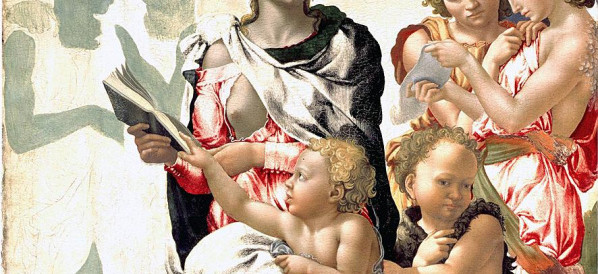 4 Terms
4 TermsHome > Terms > English (EN) > antitrust
antitrust
Government policy for dealing with monopoly. Antitrust laws aim to stop abuses of market power by big companies and, sometimes, to prevent corporate mergers and acquisitions that would create or strengthen a monopolist. There have been big differences in antitrust policies both among countries and within the same country over time. This has reflected different ideas about what constitutes a monopoly and, where there is one, what sorts of behavior are abusive. In the United States, monopoly policy has been built on the Sherman Antitrust Act of 1890. This prohibited contracts or conspiracies to restrain trade or, in the words of a later act, to monopolize commerce. In the early 20th century this law was used to reduce the economic power wielded by so-called "robber barons", such as JP Morgan and John D. Rockefeller, who dominated much of American industry through huge trusts that controlled companies' voting shares. Du Pont chemicals, the railroad companies and Rockefeller's Standard Oil, among others, were broken up. In the 1970s the Sherman Act was turned (ultimately without success) against IBM, and in 1982 it secured the break-up of AT&T's nationwide telecoms monopoly. In the 1980s a more laissez-faire approach was adopted, underpinned by economic theories from the Chicago school. These theories said that the only justification for antitrust intervention should be that a lack of competition harmed consumers, and not that a firm had become, in some ill-defined sense, too big. Some monopolistic activities previously targeted by antitrust authorities, such as predatory pricing and exclusive marketing agreements, were much less harmful to consumers than had been thought in the past. They also criticized the traditional method of identifying a monopoly, which was based on looking at what percentage of a market was served by the biggest firm or firms, using a measure known as the Herfindahl-Hirschman index. Instead, they argued that even a market dominated by one firm need not be a matter of antitrust concern, provided it was a contestable market. In the 1990s American antitrust policy became somewhat more interventionist. A high-profile lawsuit was launched against Microsoft in 1998. The giant software company was found guilty of anti-competitive behavior, which was said to slow the pace of innovation. However, fears that the firm would be broken up, signaling a far more interventionalist American antitrust policy, proved misplaced. The firm was not severely punished. In the UK, antitrust policy was long judged according to what policymakers decided was in the public interest. At times this approach was comparatively permissive of mergers and acquisitions; at others it was less so. However, in the mid-1980s the UK followed the American lead in basing antitrust policy on whether changes in competition harmed consumers. Within the rest of the European Union several big countries pursued policies of building up national champions, allowing chosen firms to enjoy some monopoly power at home which could be used to make them more effective competitors abroad. However, during the 1990s the European Commission became increasingly active in antitrust policy, mostly seeking to promote competition within the EU. In 2000, the EU controversially blocked a merger between two American firms, GE and Honeywell; the deal had already been approved by America's antitrust regulators. The controversy highlighted an important issue. As globalization increases, the relevant market for judging whether market power exists or is being abused will increasingly cover far more territory than any one single economy. Indeed, there may be a need to establish a global antitrust watchdog, perhaps under the auspices of the world trade organization.
- Part of Speech: noun
- Synonym(s):
- Blossary:
- Industry/Domain: Economy
- Category: Economics
- Company: The Economist
- Product:
- Acronym-Abbreviation:
Other Languages:
Member comments
Terms in the News
Billy Morgan
Sports; Snowboarding
The British snowboarder Billy Morgan has landed the sport’s first ever 1800 quadruple cork. The rider, who represented Great Britain in the 2014 Winter Olympics in Sochi, was in Livigno, Italy, when he achieved the man-oeuvre. It involves flipping four times, while body also spins with five complete rotations on a sideways or downward-facing axis. The trick ...
Marzieh Afkham
Broadcasting & receiving; News
Marzieh Afkham, who is the country’s first foreign ministry spokeswoman, will head a mission in east Asia, the state news agency reported. It is not clear to which country she will be posted as her appointment has yet to be announced officially. Afkham will only be the second female ambassador Iran has had. Under the last shah’s rule, Mehrangiz Dolatshahi, a ...
Weekly Packet
Language; Online services; Slang; Internet
Weekly Packet or "Paquete Semanal" as it is known in Cuba is a term used by Cubans to describe the information that is gathered from the internet outside of Cuba and saved onto hard drives to be transported into Cuba itself. Weekly Packets are then sold to Cuban's without internet access, allowing them to obtain information just days - and sometimes hours - after it ...
Asian Infrastructure Investment Bank (AIIB)
Banking; Investment banking
The Asian Infrastructure Investment Bank (AIIB) is an international financial institution established to address the need in Asia for infrastructure development. According to the Asian Development Bank, Asia needs $800 billion each year for roads, ports, power plants or other infrastructure projects before 2020. Originally proposed by China in 2013, a signing ...
Spartan
Online services; Internet
Spartan is the codename given to the new Microsoft Windows 10 browser that will replace Microsoft Windows Internet Explorer. The new browser will be built from the ground up and disregard any code from the IE platform. It has a new rendering engine that is built to be compatible with how the web is written today. The name Spartan is named after the ...
Featured Terms
The Madonna and Child with St John and Angels
The Madonna and Child with St John and Angels (c. 1495-1497) is a painting in tempera on wood by Michelangelo during his first period in Rome. The ...
Contributor
Featured blossaries
Browers Terms By Category
- Christmas(52)
- Easter(33)
- Spring festival(22)
- Thanksgiving(15)
- Spanish festivals(11)
- Halloween(3)
Festivals(140) Terms
- General packaging(1147)
- Bag in box(76)
Packaging(1223) Terms
- General seafood(50)
- Shellfish(1)
Seafood(51) Terms
- Cables & wires(2)
- Fiber optic equipment(1)
Telecom equipment(3) Terms
- Skin care(179)
- Cosmetic surgery(114)
- Hair style(61)
- Breast implant(58)
- Cosmetic products(5)



